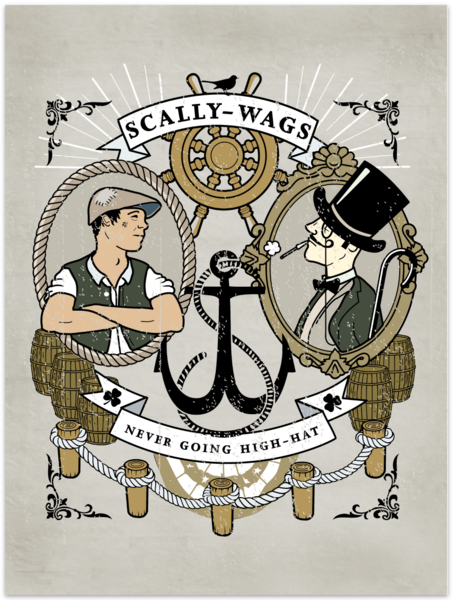History
Throughout civilization hats have provided insight into class and social standing. The top hat/high hat was a symbol of the aristocratic elite; a physical representation of extravagant wealth, elegance, and upper-class conformity. To wear a top hat meant that you were not just sophisticated, but also superior. Within America's growing immigrant communities the expression "high-hat" emerged as slang for an individual who was putting on airs. Within the Irish-American community where lace curtain vs. shanty was the order of the day, going "high-hat" was the ultimate taunt. It implied that donning at top hat was not a symbol of ethnic arrival, but a foolish display of arrogance. Its modern translation would be selling out or big timing.
If the top hat implied superiority, the scally cap suggested camaraderie. A scalawag/scally-wag was described as a laborer who worked on vessels and/or the waterfront. It was tough work done by tough men. The uniformity of their caps personified the fellowship of the job. A true Scally-Wag was more barroom than ballroom, more beer than champagne, more prizefight than opera, more tweed than silk, more scally cap than high hat.
Scalawag/Scally-Wag: A common laborer toiling away on the docks. Often identified as an Irish-American. A Scally-Wag may also refer to a rascal or scamp.
Scally Cap: Scally-Wags were often identified by their short billed hats. Hence their trademark hats became widely recognized as scally caps.
High-Hat: Refers to an individual who is trying to put on airs, selling out, big timing, or attempting to rise above his/her station
